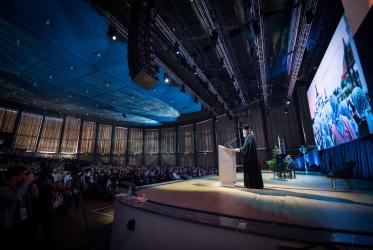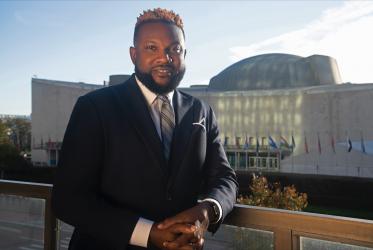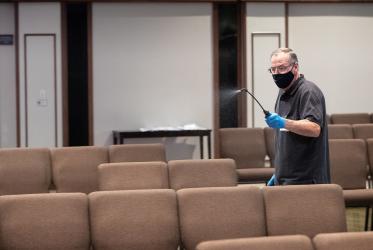Displaying 1 - 20 of 47
Ukraine: Auf humanitäre Bedürfnisse reagieren
27 September 2022
Ukraine: Responding to humanitarian need
08 September 2022
Linda Bloom reflects on three decades with United Methodist News
08 February 2021
Bible study addresses church identity in pandemic
17 September 2020
Climate emergency: faith-based groups pledge to amplify prophetic voice
25 September 2019
Turning mercy and compassion into action
04 March 2019
Racial justice issues at forefront in meetings with UN experts
01 November 2018
How can you help refugees?
11 October 2018
Religious organizations speak up on refugee crisis at UN event
29 January 2018
Tveit: Jenseits nationaler Grenzen sind wir eine Menschheit
23 January 2018
Tveit: Beyond national borders, we are one humanity
23 January 2018
Tveit: Par-delà les frontières nationales, une même humanité
23 January 2018













